2026 Author: Howard Calhoun | calhoun@techconfronts.com. Last modified: 2025-01-24 13:10:37
Many villagers keep cattle on their farms. Here, milk is a hot commodity. It is bought by summer residents, townspeople and fellow villagers. In summer and spring, milk yields increase, it should be processed into products with a longer shelf life: butter and cream. For this purpose, villagers use an electric milk separator (or manual). This will be discussed in this article.
Household separators
They are designed for milk separation at home. What is this process? Translated from Latin, "separation" is a separation, separation of a liquid with different densities. In this case, separation means the separation of particles: light from heavy. The first are cream and fat, the second are water or skimmed milk. This is how cream and butter are made.

Milk is a perishable product. Oftenthere is a need to process it to extend the shelf life and obtain new dairy products. For this, a household electric separator is used.
Varieties of separators
These home appliances differ in performance, capacity, power and many other parameters. But the main difference is that there are manual and electric separators. In our country, both types are successfully used. They differ slightly in value. But the electric separator, the price of which is still not a determining selection criterion, is much more convenient to use.
Operation principle
First, the device must be turned on: the drum starts to rotate. Milk is poured into the bowl, which, thanks to the faucet and the float chamber, enters the drum. There it is distributed on plates.

Due to the action of centrifugal force, the cream comes to the center as lighter, rises up and enters the cream receiving compartment. Skimmed milk is heavier. It peels off and is discharged through the appropriate gap into the receiver. Contaminants of mechanical origin are periodically removed: it is enough to rinse the parts with water.
How to choose the right electrical separator?
When buying a household appliance, you should read the technical specifications. Particular attention should be paid to the price indicator, the volume of the product, whether the milk belongs to a cow or a goat. It is very important how many revolutions per minute the drum makes and what materialinternal parts completed.
You don't have to think too much about the speed of rotation of the cow's milk processing drum. Almost all devices have it within eight to twelve thousand revolutions per minute. But many people prefer goat's milk, which requires a high-speed separator to process.
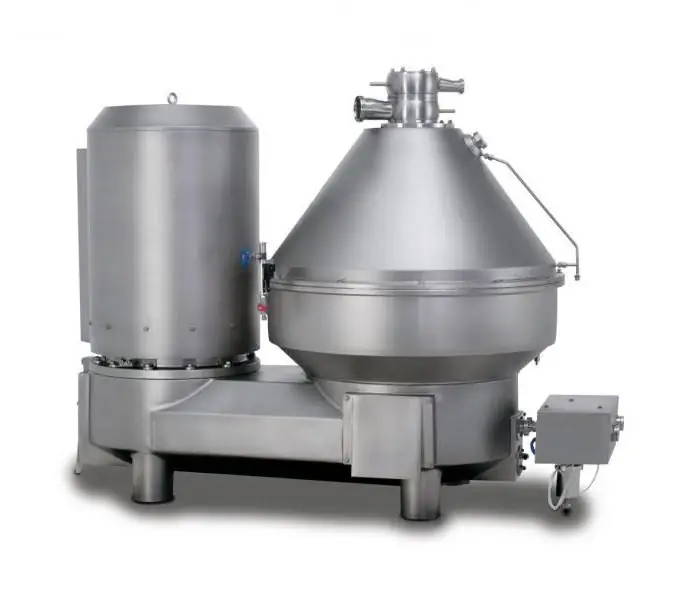
When buying an electric milk separator, it is very important to pay attention to the material from which the internal parts of the device are made. They are metal, stainless steel or aluminum, plastic and nylon. Stainless steel parts are considered more practical, they do not oxidize, they wash well, they are not difficult to care for - almost all reviews speak about this.
If you prefer aluminum parts, you should remember: acid and alkaline detergents are not for them. The most impractical are nylon parts. Now, having useful information, when buying an electric separator, you can avoid many mistakes and purchase a device for use for many years.
When choosing a separator, you should not neglect customer reviews about the product. Some people like devices with a metal case, and others - with a plastic one. Someone leaves a positive review for a high-speed household appliance, and someone is satisfied with the average number of revolutions per minute, and so on.
Household Electric Butter Separator
These devices are most often made of metal, although plastic ones are also found. The electric separator consists of a flask with a tight lid, an impeller,which is connected to an electric motor and mixes the liquid inside, for which not milk is poured into the tank, but well-settled cream.
For the mixing process, you need to close the lid and turn on the device in the network. At the end of the process, fat globules are separated from the liquid, which, when whipped, gradually begin to lose their shell and stick together, forming a clot of oil. Then the liquid is drained, and the resulting mass is laid out on a napkin to remove residual liquid.
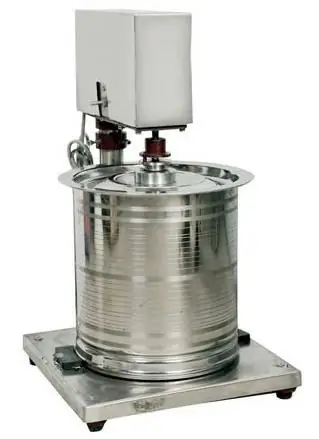
After completion of work, the household electric separator must be disassembled, washed with hot water and wiped dry. It is important to know that during operation of the separator with the tank filled with liquid, it is not turned over or tilted at a large angle. Let's say tilt up to 45°. Otherwise, liquid from the tank may enter the engine and cause a short circuit, despite the fact that the modern electric separator is equipped with a protection system.
Home manual separator
To operate the device with a manual principle of operation, you need to apply muscular strength. The container is untwisted by hands with a special handle, which transmits rotation to it through the drive. Manual separators are mainly equipped with small bowls: only 5.5 liters. Milk is constantly, up to 14 times, poured into the bowl. It is not comfortable. Therefore, many owners purchase appliances with a 12-liter bowl. But such separators are heavier, especially if the bowl is made of metal. And they cost an order of magnitude more.
Maybeit seems that in the age of high technology this is an obsolete approach to milk processing. And yet, why do people use hand tools? Yes, because manual separators work without an electrical network. When power outages, and in rural areas this is a frequent occurrence, a manual separator is more than ever useful. Consumer reviews note that it is easier to repair it at home. It costs less than an electric separator, the price of which is about a thousand rubles higher.
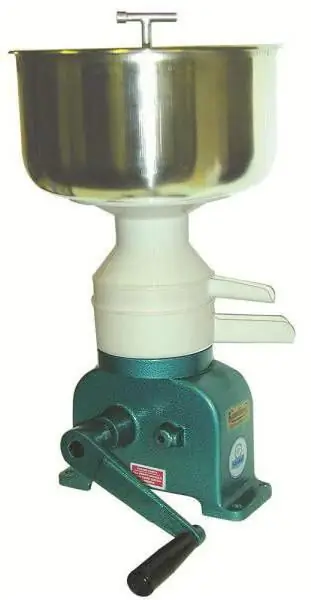
Manual devices process up to eighty liters of milk in one hour. Their weight is small, about three kilograms. Thanks to their compact design and small volume, they are easy to transport, even without vehicles.
Technical characteristics of separator ESB-02
Electric separator for milk processing of this brand has a power of 80 watts. Its drum rotates at a speed of 11 thousand revolutions per minute. The separator processes 80 liters of milk per hour. In just 1-2 minutes, it enters the operating mode and works continuously for 30 minutes. Then the device must be turned off for ten minutes and only then continue to work.
This separator is small in size and weighs up to three and a half kilograms. The ratio of cream to skimmed milk varies: the lowest is 1:4, the highest is 1:10. The milk container holds 12 liters of product. However, separators of other brands and manufacturers may have completely different technical specifications.characteristics, depending on which their prices are different.
So, this device can be bought for 3153 rubles, the Salyut electric separator - for 4341 rubles, "Rotor SP 003-01" - for 2677 rubles. This list can be continued indefinitely, as there are a lot of separator manufacturers. But the separators listed in the article are getting positive feedback from customers regarding their durability and convenience.
Recommended:
Industrial milk purifier separator: specifications and reviews
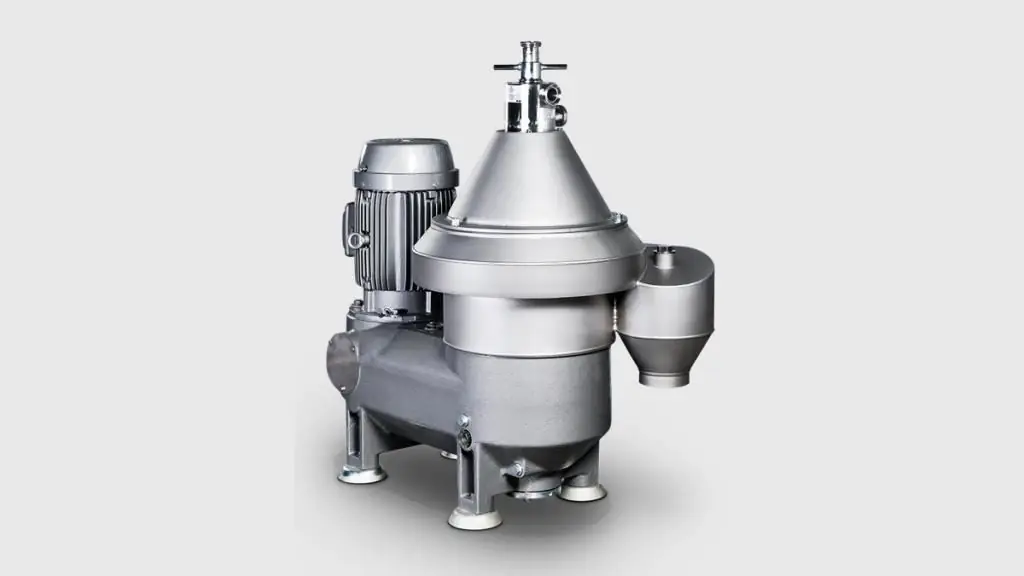
The basis for the production of meat and milk today are giant farms, where cattle are kept in quantities of more than tens of thousands of heads. With so many animals - including almost constant milking - such farms produce tons of milk per day. And of course, industrial separators are needed to filter milk
Helicopter models: overview, specifications, descriptions and reviews

Helicopter models: rating, description, features. Radio-controlled helicopter models: an overview of the best modifications, photos, reviews. Mi helicopter kit model: parameters
Electric jackhammer: overview of models

It is possible to carry out repairs in the house on your own today without the help of specialists. The tool presented on the market allows you to safely and effortlessly carry out even complex installation operations. This is confirmed by the characteristics of the electric jackhammer, thanks to which many people even make redevelopment. It remains only to decide on a suitable model
What is an electric hoist? Electric hoist for vertical lifting of loads
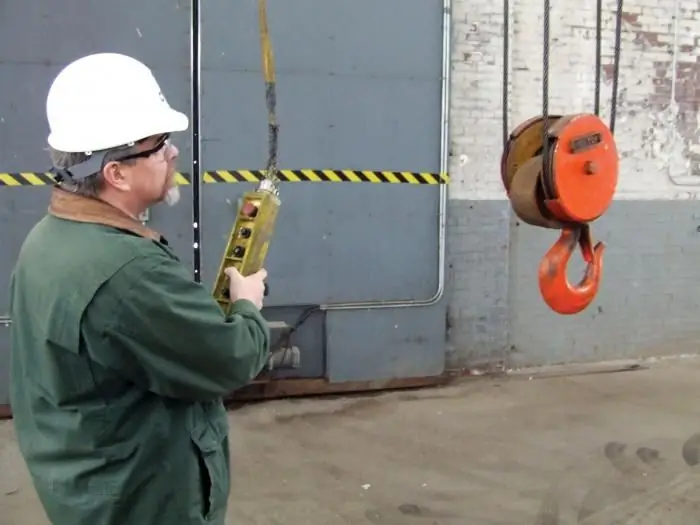
The article is devoted to the electric hoist. The design of the lifting unit, its operational capabilities and varieties are considered
What is electric current? Conditions for the existence of electric current: characteristics and actions
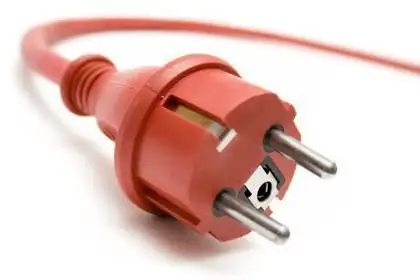
Electric current is an electrical charge in motion. It can take the form of a sudden discharge of static electricity, such as lightning. Or it could be a controlled process in generators, batteries, solar or fuel cells. Today we will consider the very concept of "electric current" and the conditions for the existence of electric current

